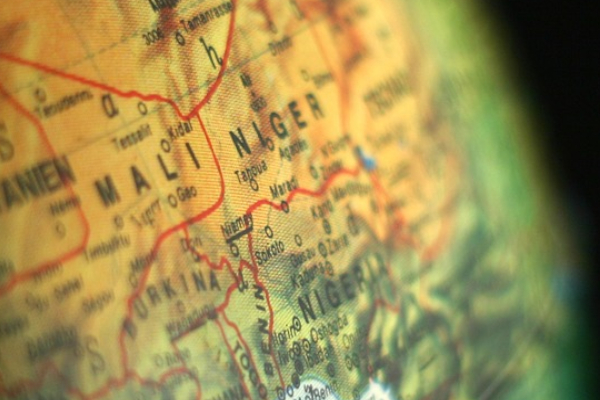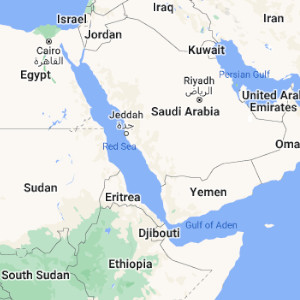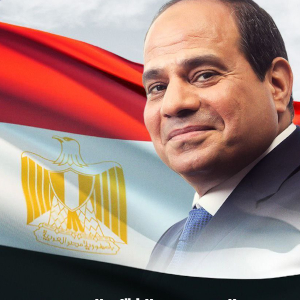Transcript:
How did 2023 end in the Sahel and what should we expect 2024 to look like?
Firstly, Christmas in Africa this year has been gloomy to say the least. There was not much to cheer for. The political, economic, social and security environments in many African nations have been experiencing the worst-case scenario, so much so that 2024 is likely to bring more bad news for millions of people. While the end of the Covid19 pandemic brought hope of return to some normalcy and pave the way for recovery, economic woes, violence, a degraded environment, and political leaders unable to solve problems, were compounded by the impacts from the wars in Ukraine and in the Middle East to make the lives of millions miserable and the outlook does not bode well.
As we enter 2024, we see that Africa continues to be ravaged by persistent zones of armed conflict. Troubles are everywhere from the DR Congo, with its chaotic presidential election held on the 20th of December, to Sudan, Mozambique and so many other places. Of course, the Sahel is where all the problems seem to pile up at once. What are the latest developments in the Sahel that could point as to how 2024 will evolve?
First, let’s go to northern Mali, where Tuareg militants seeking autonomy from the central government based in the southern city of Bamako, announced on December 20 that they had established a blockade on the main roads in northern Mali, where the Malian army has regained a foothold in recent weeks. While the Malian military has launched an offensive in November to regain control of Kidal, the Touaregs want to disrupt any return to normalcy under the rule of the central government. The blockade means that the Touaregs would have a say on the movement of people, cargo and merchandise.
Because the blockaded zone includes the towns of Ménaka, Kidal, Gao, Timbuktu and Taoudeni, expanding all the way up to the border with Algeria, this decision is likely to affect people’s movement and trade not only throughout large swaths of the Malian territory but inside Mauritania and Niger. The retaking of a Kidal by the Malian military was marred with accusations of abuses and mistreatment of civilian populations by soldiers of the Malian army. Mali also allegedly benefited from the support of the Wagner Group.
Meanwhile, the Malian government is also dealing with a second front, against Jihadist militants of the Support Group for Islam and Muslims affiliated with Al-Qaeda who have been wreaking havoc in the troubled country. On December 14, the army reported an attack in Farabougou in the center of the country. While it said it managed to repel the attackers, dozens of Malian soldiers and civilians were said to have been killed in the fight. The total death toll was not published but media sources say it could be as high as 62. Several people, including army troops, were kidnapped by the fleeing assailants.
In nearby Niger and Burkina Faso, the latest developments focus on the two countries distancing themselves from the influence of the formal colonial power, France. In Niger this month, the government turned to Russia with the signing of a memorandum of understanding to strengthen cooperation in defense, showing to what extent Vladimir Putin is the beneficiary of the failures of France’s African policies, under the leadership of the last two presidents, François Hollande and Emmanuel Macron. One man in France’s foreign affairs circles stands out in inability of France to maintain its presence in the Sahel and elsewhere in Africa: Jean Yves Le Drian, former Minister of Defense then Foreign Affairs, is criticized by French analysts and the media for having focused on the military solution to problems that required more nuanced and multifaceted approaches to Africa’s problems.
As 2023 ended, the capital of Niger, Niamey, found itself without a French embassy, a situation that never happened before. The French embassy in Niamey is now permanently closed thanks to the misguided positions of the hawks in Paris who favor military solutions to diplomacy, economy, and development assistance.
Emphasizing the drop in the level of cooperation between Paris and Niamey, France has decided to close its embassy in Niger, arguing that “it is no longer able to function normally or to carry out its missions,” shortly after Niger announced the departure of all French soldiers deployed in the country. Over the past summer, the Niger authorities had ordered the French ambassador, Sylvain Itté, to leave, a move that resulted in a diplomatic feud with Paris.
As France is forced to retract, Russia makes its position clearer as to its intention on the continent. As 2024 progresses, Russia’s goal is to clearly undermine the West’s influence in Africa, by providing military assistance to countries that otherwise would have never gathered any support from the west. There are also observers and commentators who argue that Russia is actively engaged in fostering instability, disrupting elections, exporting arms and potentially fueling migration policy, all in an effort to destabilize Europe. True or not, this strategy is still a conceivable one.
There is also the fact that Russia could benefit from Africa’s mineral wealth and natural resources to circumvent western efforts to blockade its economy. The country needs manganese, bauxite, chrome and so many other commodities to fuel its industries, in particular its defense industry. And what does Russia have to offer? Security contracts such as the one it just inked with Niger.
Russia also considers African nations as potential diplomatic allies that can strengthen Moscow’s positions in places like the United Nations.
In Burkina Faso, anti-French sentiment led to the transitional regime of Ibrahim Traoré to announce a new bill revising the constitution and replacing the French language with local languages as official languages of the country. Several anti-France lobby groups staged demonstrations demanding constitutional reform that they say must enshrine political, economic and cultural sovereignty with the country’s distancing itself from France.
The Brukinabe discontent with France runs deep. French magazine Jeune Afrique recently reported that four agents of the French spy agency, the Directorate General of External Security (DGSE) were arrested in early December 2023 in Ouagadougou. The agents were held and questioned for about ten days, before ordering their incarceration at the main prison in Ouagadougou. Burkina is accusing the group of espionage as talks between the two countries are underway with the help of third-party mediators.
Here too observers see the hands of Russia, which has lately become an easy target of the French and western press, accusing it of being an instigator of trouble in the Sahel. In contrast to the French withdrawing diplomatically, the Russians are in. This is the case of Burkina Faso with the December 28, 2023 reopening of the Russian embassy in Burkina Faso which closed in 1992. The reopening coincided with the announcement that 25,000 tons of wheat were headed from Russia to Burkina Faso as humanitarian aid from Moscow, which shortlisted five other African countries in addition to Burkina to get cereals at no cost for the destination countries.
Jeune Afrique magazine notes that its sources reported that Russian nationals, probably agents of the Russian military intelligence GRU, have been working in Burkina Faso to help the junta reorganize its security services. Obviously, we cannot verify this information, however, this may not be out of the ordinary. Sahelian nations that turned their back to France are likely looking for support from other military powers, and Russia could be the right candidate.
So as we look at 2024, should we be concerned about the Sahel and its peoples. Absolutely. The fundamentals of stability are not there, and while most analysts worry about the impact of Russia in the region, we should be more concerned about the French undermining any progress in the region, after the humiliating exit of its troops and its diplomats. The main issue is that France it likely to launch a campaign to potentially block any efforts made by the military juntas in the Sahel, and the reality is that Paris knows the region very well. It has the knowledge, the networks and relationships, it has been controlling all aspects of the local economies, it prints the money, it holds Sahel nations’ currency reserves, and it has historical ties no other wester nation can match. Compared to Russia’s knowledge of and interaction with the Sahel, France is a giant, dwarfing Russia many times. France is also home to hundreds of thousands of people from the Sahel and so the factors that tie the Sahel to France are much stronger than in another country. France has what it takes to make or break the Sahel and so rather than worry about Russia per se, my number one concern is France’s future actions, overt or covert, in the Sahel.
However, is there a silver lining or a sort of light at the end of the tunnel for the Sahel? Possibly? My feeling is that before the most recent coups that have toppled in niger, mali, burkina and guinea, there was a sense of gloom and doom. The ousted regimes were essentially proxies of France, a continuation of the immediate post-colonial era that never saw these nations reach real sovereignty. As such, there were no real domestic stakeholders who are concerned about economic and social development, security and social stability. All you had were regimes that focused on their own survival with little to no concern about fate of the Sahelian populations. That allowed the security climate to the point that outside forces like the various terror groups operate without being bothered. That allowed communal relations to worsen and tens of thousands of people killed with fights between herders and farmers, for example. The countries’ environmental and climate degradation accelerated and no one cared.
Although, and for the record, I never endorsed military regimes, and will not endorsed these juntas, it is possible that the fact that Burkina, Mali and Niger are inward-looking, even with the presence with Russian operatives, that could be the silver lining. Junta leaders, love them or hate them, see no value in the post-colonial status quo and are talking to each other to potential create new institutions created organically, not with a mandate from western Europe. They have already left the ineffective G5 regional force that was engineered by France and have created a three country coalition that brings together their defensive forces. Next, I predict that this year, that is 2024, they will also leave the West African Economic and Monetary Union and ditch the Franc CFA to adopt a Sahelian currency. I am assuming that Russia will make its services available to print their money when they are ready. There also many forces and lobby groups in the Sahel who are pushing for the three countries to withdraw from the West African grouping ECOWAS, after the latter threated military intervention to bring back the toppled ex-Niger president Mohamed Bezzoum. Such threats were only possible because France pressured ECOWAS to do so. Exiting Ecowas would be an extraordinary step, but still marginally possible.
So these governing juntas have a lot to deal with and the process will be extremely painful, but then again options do they have? Return to the old post-colonial freeze?


